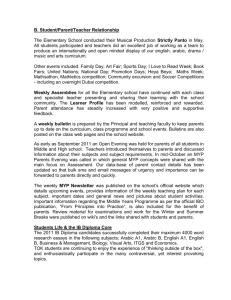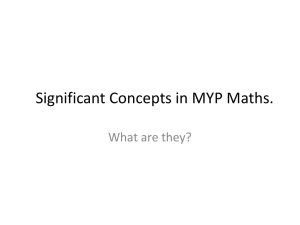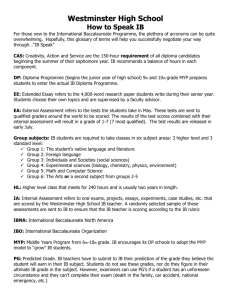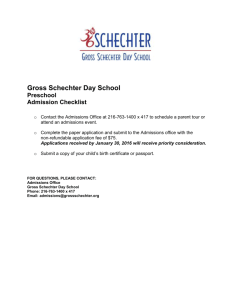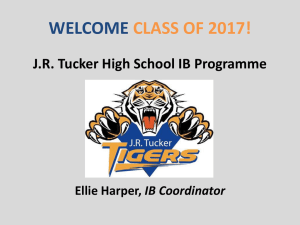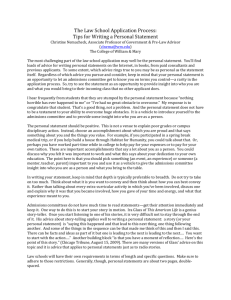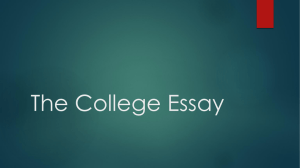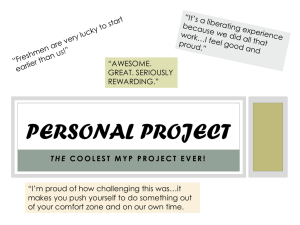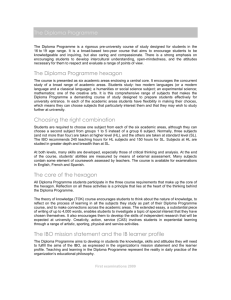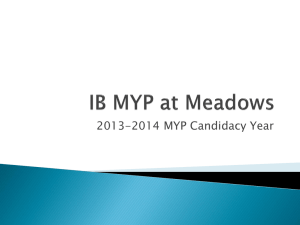Personalizing Your University Admissions Story within the IB
advertisement
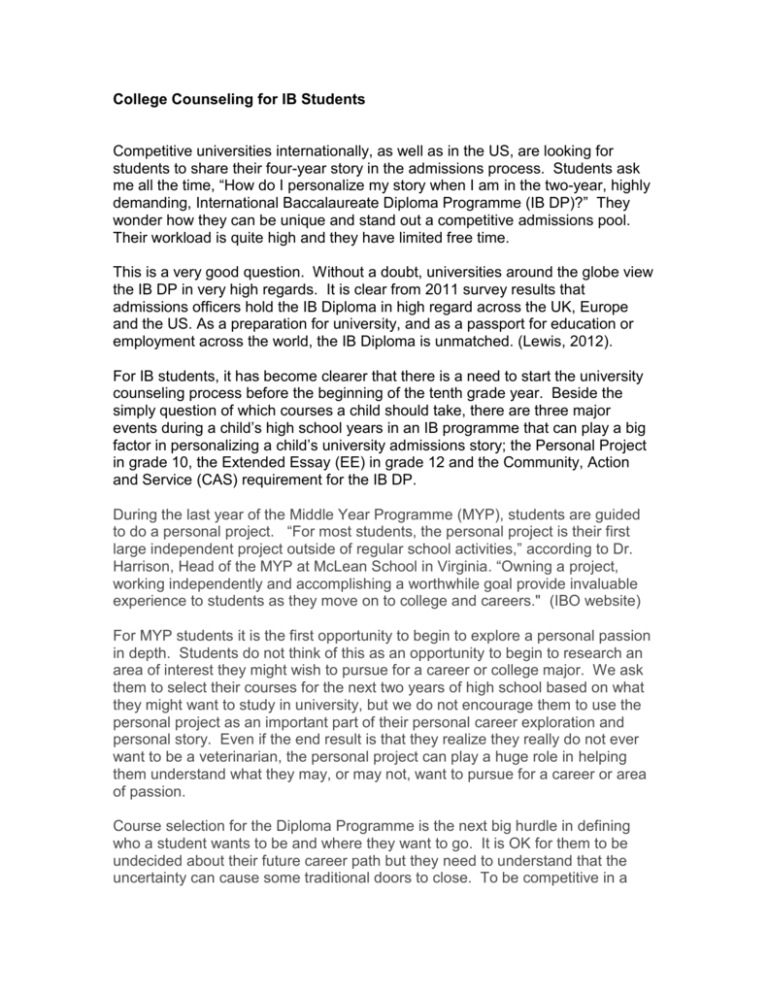
College Counseling for IB Students Competitive universities internationally, as well as in the US, are looking for students to share their four-year story in the admissions process. Students ask me all the time, “How do I personalize my story when I am in the two-year, highly demanding, International Baccalaureate Diploma Programme (IB DP)?” They wonder how they can be unique and stand out a competitive admissions pool. Their workload is quite high and they have limited free time. This is a very good question. Without a doubt, universities around the globe view the IB DP in very high regards. It is clear from 2011 survey results that admissions officers hold the IB Diploma in high regard across the UK, Europe and the US. As a preparation for university, and as a passport for education or employment across the world, the IB Diploma is unmatched. (Lewis, 2012). For IB students, it has become clearer that there is a need to start the university counseling process before the beginning of the tenth grade year. Beside the simply question of which courses a child should take, there are three major events during a child’s high school years in an IB programme that can play a big factor in personalizing a child’s university admissions story; the Personal Project in grade 10, the Extended Essay (EE) in grade 12 and the Community, Action and Service (CAS) requirement for the IB DP. During the last year of the Middle Year Programme (MYP), students are guided to do a personal project. “For most students, the personal project is their first large independent project outside of regular school activities,” according to Dr. Harrison, Head of the MYP at McLean School in Virginia. “Owning a project, working independently and accomplishing a worthwhile goal provide invaluable experience to students as they move on to college and careers." (IBO website) For MYP students it is the first opportunity to begin to explore a personal passion in depth. Students do not think of this as an opportunity to begin to research an area of interest they might wish to pursue for a career or college major. We ask them to select their courses for the next two years of high school based on what they might want to study in university, but we do not encourage them to use the personal project as an important part of their personal career exploration and personal story. Even if the end result is that they realize they really do not ever want to be a veterinarian, the personal project can play a huge role in helping them understand what they may, or may not, want to pursue for a career or area of passion. Course selection for the Diploma Programme is the next big hurdle in defining who a student wants to be and where they want to go. It is OK for them to be undecided about their future career path but they need to understand that the uncertainty can cause some traditional doors to close. To be competitive in a university admissions pool in the UK or in Hong Kong for engineering, for example, students may be required to take high-level courses in math and physics. Without those specific courses, they might not be eligible to apply. Understanding personal academic strengths and weaknesses can play an important role in helping a student to decide which courses will be best for a to study for the next two years. It is additionally important to be well prepared for the demands of higher education. It is a huge investment of money and if a student is not academically successful, they have not invested wisely. Strong advising programs on the secondary level play a crucial role in guiding students as they progress academically and begin to make decisions that might have future repercussions both positive and negative. The 4,000 word Extended Essay and the substantial requirements for Community, Action and Service, both required components of the IB DP, are two more areas where students can make choices that can boost their personal story to demonstrate to universities why they want to follow a particular path and what they have done to prepare themselves for that choice. Too often students do not look at these requirements as an opportunity to tell their personal story. They will ask how they can volunteer in their area of interest. They are only limited by their own imaginations. A student interested in art could volunteer in an elementary school program learning about teaching and supporting both a teacher and students in an art class. Or they could volunteer to help design sets for a drama production. The whole point is that the canvas is blank, but both the Extended Essay and the CAS requirements can provide beautiful colors to bring their personal story to life for an admissions committee somewhere in the world. The IB DP is a very rigorous course of study. It is highly demanding of a student’s time and energy. By strategically incorporating required elements of the IB programme, a student can personalize and individualize their story without additional time commitments or work load. International Baccalaureate Organization, Retrieved from www.ibo.org/aboutus/fastfacts Lewis, J (2012) Routes to international higher education: university admissions officers’ research. International Schools Journal Vol XXXI No. 2, April 2012 The personal project is an important part of the MYP. Students learn to manage and direct their own inquiry and further develop the skills they have learned through the MYP. Under a teacher’s supervision, each student leads the process of developing the personal project. Assessment stands as a summative review of students’ability to conduct independent work using the areas of interaction as contexts for their learning.
